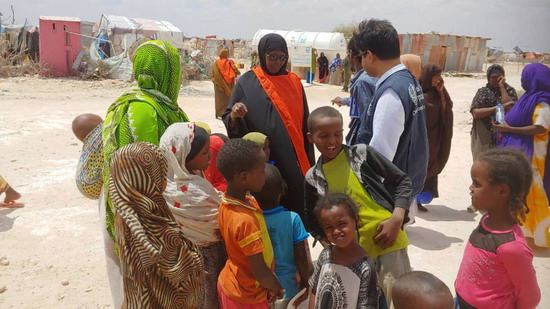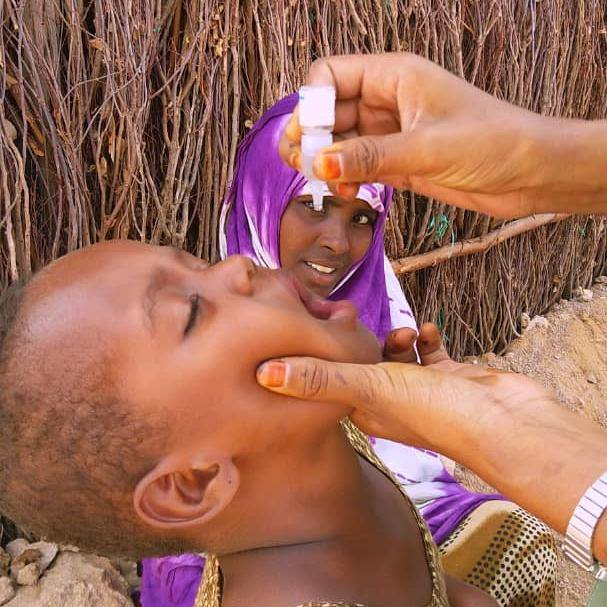 Mogadishu, 26 March 2019 – A nationwide polio immunization campaign has been launched in Somalia that will run from 24 to 27 March. The campaign aims to vaccinate an estimated 3.1 million children under the age of 5 in the country.
Mogadishu, 26 March 2019 – A nationwide polio immunization campaign has been launched in Somalia that will run from 24 to 27 March. The campaign aims to vaccinate an estimated 3.1 million children under the age of 5 in the country.
 The campaign is part of WHO’s efforts to ensure that Somalia remains polio free as it has from indigenous wild poliovirus since 2014. However, 2 strains of circulating vaccine-derived polioviruses – vaccine-derived poliovirus type 2 (cVDPV2) and type 3 (cVDPV3) are concurrently circulating in the country and have left 12 Somali children paralyzed.
The campaign is part of WHO’s efforts to ensure that Somalia remains polio free as it has from indigenous wild poliovirus since 2014. However, 2 strains of circulating vaccine-derived polioviruses – vaccine-derived poliovirus type 2 (cVDPV2) and type 3 (cVDPV3) are concurrently circulating in the country and have left 12 Somali children paralyzed.
Since the first week of September 2018, the country has not witnessed any new case of cVDPVs in children with acute flaccid paralysis. The same virus has also been confirmed in Kenya. Vaccine-derived polio viruses are rare and only occur when polio vaccination rates are low resulting in low immunity against polio virus.
The national polio immunization campaign is being launched by the Government of Somalia with the active support of WHO and UNICEF. The campaign is being supported by the Global Polio Eradication Initiative.
 Around 15 000 frontline polio health workers are actively engaged in the campaign and will visit every house to ensure that all children under the age of 5 in the country get at least one single dose of oral polio vaccine during the campaign. Every under-immunized child, in every location in the country, including areas that have not been affected with the polioviruses yet, will be reached during this nationwide campaign.
Around 15 000 frontline polio health workers are actively engaged in the campaign and will visit every house to ensure that all children under the age of 5 in the country get at least one single dose of oral polio vaccine during the campaign. Every under-immunized child, in every location in the country, including areas that have not been affected with the polioviruses yet, will be reached during this nationwide campaign.
The campaign is part of WHO’s polio eradication initiative in Somalia which aims to keep the country free from polio and to build immunity of all children under 5 against poliovirus. Multiple vaccination campaigns are also being planned in the future as part of this initiative to protect Somali children against the threat of polio.
The WHO country office in Somalia is working with Somali health authorities to improve routine immunization for polio and other vaccine-preventable diseases and strengthen surveillance to ensure that the country remains polio free. Apart from maintaining high levels of vaccination coverage, WHO is also supporting national and local health authorities to maintain a robust surveillance system for acute flaccid paralysis and rapid outbreak response capacities to investigate and detect any suspected case of wild or vaccine-derived poliovirus early.
Related links
The Global Polio Eradication Initiative (GPEI)
What is vaccine-derived poliovirus?


